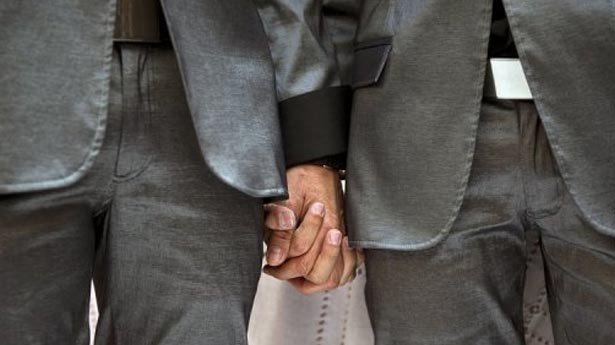Ohio Senate to consider law to allow pastors to refuse to perform same-sex marriages
The Pastor Protection Act was approved by Ohio House in June and passed to the Senate
By Steve Brown

Words: Steve Brown
The Ohio Senate is considering allowing pastors to not have to perform same-sex marriages in a new law.
The Pastor Protection Act says that an ordained or licensed minister should have the right to refuse to perform same-sex marriages if it goes against their religious or societal beliefs and in June Ohio House approved the legislation.
Now the Senate will be considering whether to approve the legislation despite same-sex marriages being made legal in the state back in 2015.
However, the American Civil Liberties Union has spoken out against the legislation and said it is ‘unnecessary’ and will ‘open the door for discrimination’ against the LGBT community.
In a statement, the ACLU said: “The ACLU of Ohio opposes this unnecessary legislation, which may open the door for discrimination against LGBTQ people under the guise of protecting religious liberty.
“To be clear, religious leaders’ right to decline to perform weddings is already protected by the First Amendment and Article I of Ohio’s Constitution.
“Despite HB 36’s underlying implications to the contrary, pastors’ right to choose who they marry is not under attack.
“However, HB 36 is not merely a redundant piece of legislation that restates a well-established and unchallenged right.
“The bill includes dangerously vague language allowing ‘religious societies’ to selectively determine who can use their buildings and property for marriage ceremonies, even if these facilities are commercially open to the public.
“This provision would seemingly allow churches and groups associated with a particular religion to deny same-sex couples access to non-worship spaces like gazebos and halls.
“The ACLU of Ohio strongly believes that when these church-owned spaces are advertised and open for public use, they should be made available to all members of the public….Religious freedom and LGBT rights are not incompatible.
“No clergy person has been forced against their will to perform a gay marriage ceremony.
“However, LGBT Ohioans are being denied housing, employment, and public accommodations because of who they are, and are not protected from this discrimination under Ohio law.
“Our legislators should focus on eliminating this unequal treatment, rather than trying to pass divisive and redundant legislation that targets a non-existent problem.”
